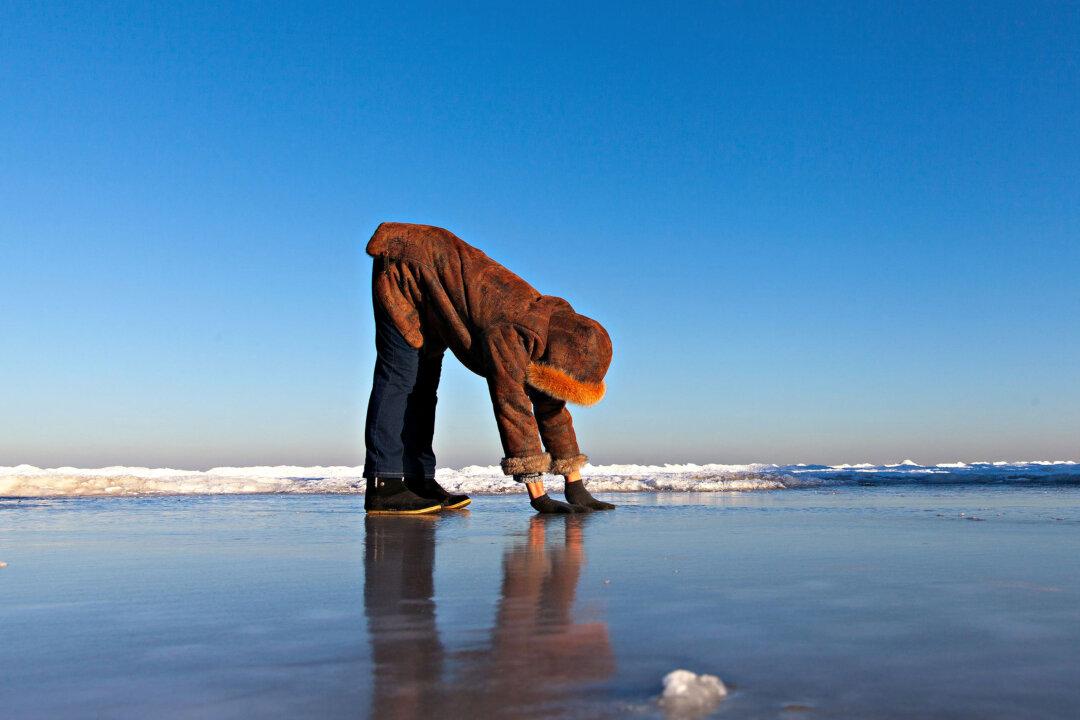About twenty years ago while biking through the countryside in Wisconsin, I witnessed my first serious asthma attack. My husband and I were riding with our friends Lenny and Kathy. We were flying down country roads past rolling hills, farms, and stands of wild flowers. A long steep hill caught our attention, and the four of us attacked it, trying to hold onto the momentum we had built up. The next thing I knew, Kathy was on the ground beside her bike, crying. I can remember thinking, “Hey, lighten up, it’s not that big of a hill.”
It turned out that Kathy was having an asthma attack—a fairly serious one. She was getting panicky because she couldn’t breathe, and she had left her inhaler back at the hotel. It took some time, but we were able to get Kathy calmed down until the attack passed, and we gently finished our ride.
Asthma is no laughing matter. Over 16 million adults and 7 million children in America suffer from asthma, and it kills about 5,000 people a year.
Asthma occurs because the airways in your lungs tighten, become inflamed, or become filled with mucous. The symptoms include shortness of breath, chest tightness, coughing, and wheezing. Symptoms may be frequent or occasional, and they may be mild, severe, and even life threatening.
In Chinese medicine, there is always some element of phlegm associated with a diagnosis of asthma. In fact, the Chinese use the term “abiding phlegm” in talking about asthma, meaning that even when you’re not having symptoms; the phlegm is always an underlying cause of the condition. In Chinese medicine, asthma may be caused by the environment, strong emotions, poor diet, stress, overwork, and being depleted by chronic illness.
There are a number of underlying patterns, or Chinese medical diagnoses, that are associated with asthma. A couple can be by-products of a bad cold or flu, in that the asthma flares up when you’re is sick. The patterns include:
Wind/Cold. This is the kind of asthma you get when you have a cold and it sinks into your chest, making it hard for you to breathe. Typical symptoms include a headache, aches and pains, a low grade fever, mild chills, a sensation of feeling cold, chest tightness, and coughing of thin, white phlegm. While this pattern is usually associated with a cold or the flu, it can occur without your ever being sick. In that case, allergies, cold air, wind, or even exercise may be triggers.
Phlegm Heat. If you don’t get over your cold right away, your chest may remain congested and you may wheeze and cough up thick yellow phlegm. (Gross!) Inflammation or infection is a player in this pattern, so you will also feel hot and thirsty, you may run a fever, and feel dry and constipated. Again, this pattern doesn’t necessarily have to be the by-product of a cold or the flu. There are some people who have asthma that is hot and inflamed all the time who would also fall under this pattern.
Lung Deficiency. This tends to be a less severe form of asthma. Symptoms include shortness of breath, a weak voice, a forceless cough, wheezing, sweating (not necessarily associated with feeling hot), and thin white or clear phlegm. Lung deficiency sounds exactly like what it is—weak lungs.
Kidney Deficiency. How could your Kidney have anything to do with asthma? Well, your Chinese Kidney is associated with your body constitution, the strength of your health, how well you age, and the strength of your energetic reserves. A weak Kidney system is associated with an overall depletion of energy—you’re run down. This is the type of asthma that is frequently triggered by exercise, exertion, or cold. Other symptoms include shortness of breath, difficulty inhaling, fatigue, feeling cold to your core, and cold extremities.
Treatment for asthma, according to Chinese medicine is two-fold. During the acute stage, the first order of business is to calm the attack and promote smooth respiration. This would be done using acupuncture and herbs. It needs to be said here that if your asthma is not under control, an attack is serious and could even be life-threatening. This means that you need to be under the care of a doctor who can prescribe medications, usually as an inhaler, for emergency attacks.
The second level of treatment is to alleviate the underlying cause of your asthma when you’re not having symptoms. For example, if Phlegm/Heat is causing your asthma, then treatment would focus on reducing or drying the phlegm and clearing your heat. Again, a combination of acupuncture and herbs, combined with food therapy and lifestyle changes would be used.
A few tips that may be helpful in controlling and alleviating your symptoms include:
- Avoid triggers that cause your symptoms. These may include cold, exercise, allergens, and certain foods.
- Stay out of smoky rooms.
- If you also suffer from heartburn, know that a flare up can aggravate your asthma. Deal with the heartburn to help your asthma.
- Keep your neck and chest warm, especially if cold is a trigger for you. Wear a scarf.
- Take it easy on the dairy products. They tend to produce phlegm.
- Try breathing exercises. Take a Yoga, Tai Qi, or Qi Gong class. Otherwise, breathe to a 4-7-8 count. Inhale to the count of 4, hold to the count of 7, and exhale to the count of 8. Do a set of 4 a couple of times a day. Personal note: Breathing exercises completely alleviated my exercise-induced asthma.
- It’s great to go the alternative medicine route, but don’t be stupid. Use your inhaler if you’re having an attack.
- If you get caught without your inhaler, try some caffeine. It acts like the asthma drug Theophylline. Also, a cup of coffee or tea before your workout may also keep exercise-induced symptoms under control.
- Try some Vitamin B6. 50 mg. a day may help with the severity of your symptoms.
- Keep in touch with your lungs. This is so touchy-feely, but it’s important to recognize patterns so you can head off an attack. (Like pain, it’s much easier to manage if you try to control it early.) See your doctor if your symptoms seem to be getting worse or harder to control.
This article was originally published on acupuncturetwincities.com





